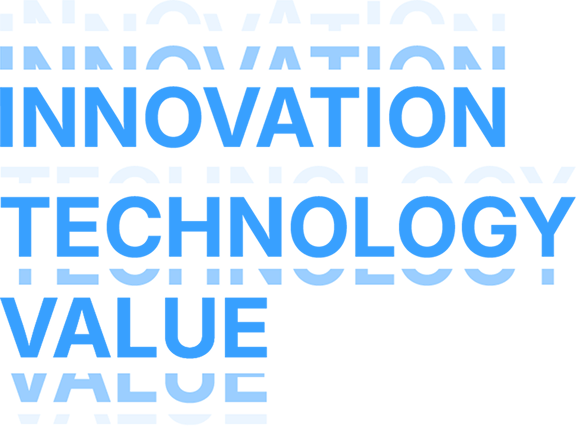What is GDPR compliance?
GDPR, General Data Protection Regulation, represents one of the most significant regulatory frameworks governing data protection in the modern digital landscape.
It is a comprehensive legal framework that governs how organizations collect, process, and store personal data belonging to European Union residents. This regulation establishes fundamental principles ensuring that data processing activities remain lawful, fair, and transparent while empowering individuals with unprecedented control over their personal information.
The scope of GDPR extends far beyond European borders, creating a global compliance imperative for any organization that processes personal data of EU residents, regardless of their physical location. This extraterritorial reach has profound implications for businesses worldwide, including IT outsourcing companies and service providers who must ensure all data handling practices align with GDPR principles.
The regulation’s comprehensive nature means that organizations operating in the digital economy must fundamentally reconsider their data governance strategies to demonstrate a genuine commitment to protecting individual privacy rights.
What is GDPR compliance history?
The General Data Protection Regulation emerged from a complex legislative evolution within the European Union, officially taking effect on May 25, 2018. However, the regulatory foundation underlying GDPR compliance can be traced back to earlier EU data protection directives, particularly the 1995 Data Protection Directive, which had become increasingly inadequate in addressing contemporary digital privacy challenges.
The development of GDPR represented a strategic response to mounting concerns over data breaches, unauthorized data collection practices, and the growing influence of technology companies in personal data monetization. European policymakers recognized that existing fragmented national data protection laws across member states created compliance complexities and inconsistent privacy standards. Meanwhile, the digital transformation is accelerating across industries, demanding more robust regulatory frameworks capable of addressing emerging technologies and data processing practices.
Since its implementation, GDPR has catalyzed a global shift toward stricter data protection standards. Many countries have adopted GDPR-inspired legislation, creating a ripple effect that extends the regulation’s influence far beyond European borders. This international trend reflects growing awareness among governments and consumers about online privacy risks and the need for comprehensive data protection measures.
What is GDPR compliance’s Key Characteristic and Framework?
GDPR compliance is structured around seven fundamental principles that govern all data processing activities: lawfulness, fairness and transparency, purpose limitation, data minimization, accuracy, storage limitation, and integrity and confidentiality. These principles create a comprehensive framework that organizations must integrate into their operational practices and technological infrastructure.
The regulation grants individuals eight distinct rights that significantly expand personal control over data processing activities. These include:
- The right to be informed,
- The right of access,
- The right to rectification,
- The right to erasure (commonly known as the right to be forgotten),
- The right to restrict processing,
- The right to data portability,
- The right to object,
- And the rights related to automated decision-making and profiling.
Organizations must implement technical and organizational measures that not only protect these rights but also enable individuals to exercise them effectively.
Compliance requirements extend to maintaining detailed processing records, conducting data protection impact assessments for high-risk processing activities, and implementing breach notification procedures. For instance, organizations must maintain a Record of Processing Activity (ROPA) that documents all data processing operations, providing transparency and accountability mechanisms. These comprehensive documentation requirements reflect GDPR’s emphasis on demonstrable compliance rather than mere assertion of adherence to regulatory principles.
Distinction from Similar Regulatory Frameworks
GDPR compliance differs significantly from other privacy regulations and cybersecurity frameworks in both scope and enforcement mechanisms.
While GDPR and other cybersecurity standards share common ground in data protection objectives, GDPR’s comprehensive approach addresses broader privacy rights and transparent data processing practices beyond technical security measures.
The regulation’s extraterritorial application distinguishes it from regional privacy laws such as Australia’s Privacy Act or California’s Consumer Privacy Act.
Unlike these jurisdictional frameworks, GDPR creates compliance obligations for any organization processing EU citizens’ data, regardless of the organization’s physical location or primary market focus.
This global reach has established GDPR as a de facto international standard for data protection practices.
Furthermore, GDPR’s emphasis on individual rights and organizational accountability creates more stringent requirements than many traditional privacy regulations. The regulation’s penalty structure, which can impose fines up to 4% of annual global turnover or €20 million (whichever is higher), demonstrates the European Union’s commitment to enforcing compliance across international business operations.
Business Impact and Strategic Implications
GDPR compliance has fundamentally transformed how organizations approach data governance and privacy management across global markets. Companies processing EU citizens’ data, including IT outsourcing firms and service providers, must implement comprehensive compliance programs that often require significant technological and operational investments.
For businesses operating in regions like Australia, GDPR compliance considerations extend beyond direct EU market engagement. Australian companies handling EU citizen data through various channels—including international customer relationships, employee data from European subsidiaries, or partnership arrangements—must ensure their data processing practices meet GDPR standards. This compliance requirement has created new considerations for business development and operational planning.
The strategic importance of GDPR compliance extends to competitive positioning and customer trust building. Organizations demonstrating robust privacy practices through GDPR compliance can differentiate themselves in markets where data protection concerns influence purchasing decisions. However, achieving sustained compliance requires ongoing investment in privacy management systems, staff training, and regular assessment of data processing activities.
Maintaining GDPR compliance in outsourcing relationships has become particularly critical as organizations increasingly rely on external service providers. Businesses must establish comprehensive data processing agreements that clearly define responsibilities, implement regular compliance monitoring procedures, and ensure service providers maintain appropriate technical and organizational measures. The complexity of managing compliance across extended supply chains reflects the regulation’s broad impact on contemporary business operations and strategic planning processes.
![[FREE EBOOK] Strategic Vietnam IT Outsourcing: Optimizing Cost and Workforce Efficiency](https://vti.com.vn/wp-content/uploads/2023/08/cover-mockup_ebook-it-outsourcing-20230331111004-ynxdn-1.png)


